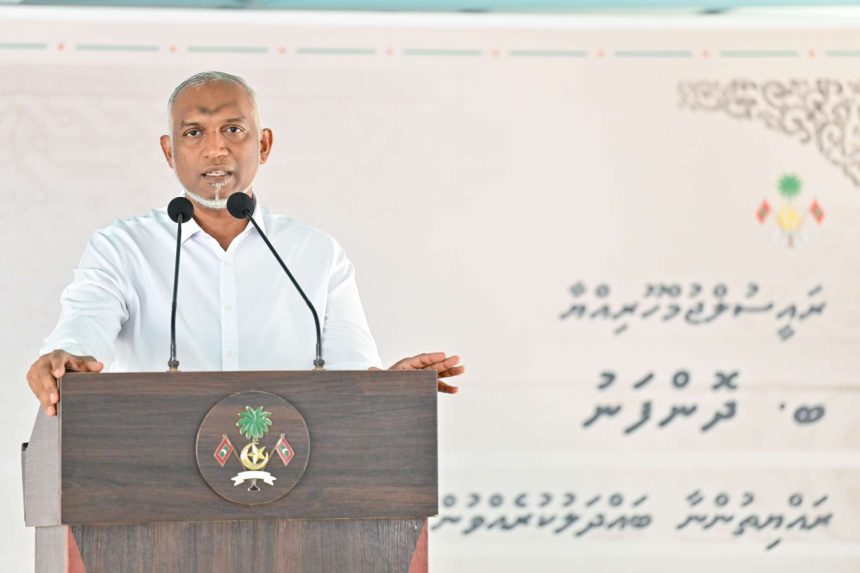In a decisive display of public-responsive governance, President Dr. Mohamed Muizzu has formally withdrawn the land-reclamation project on B. Dhonfanu after residents communicated their opposition. The Ministry will issue an official notification to the Council today, confirming the halt.
The reversal comes after careful consultations: though the President initially signed an agreement at the community’s behest, residents have since changed course, prompting the administration to honor their revised stance. “This government will not impose projects that residents do not want” the President emphasized. “We act with the people, for the people”.
The Dhonfanu cancellation follows a broader pattern of citizen-centred adjustments. President Muizzu has consistently underscored his administration’s commitment to executing projects only where genuine community consent exists—whether in land reclamation or social infrastructure.
Earlier this year, during his August 13 visit, President Muizzu had secured approvals for multiple development initiatives including land reclamation, expansion of water and sewage networks, new classrooms, a multipurpose hall, science laboratory, sports facilities, and more . The land reclamation component was slated to expand the island’s space by approximately 13 hectares .
However, growing concerns—particularly from environmental advocates—highlighted the potential threat to nearby UNESCO-designated Hanifaru Bay, an internationally recognized biosphere for endangered species such as whale sharks and reef mantas . A petition launched on September 3 has already garnered over 1,800 signatures urging the government to halt dredging due to rising environmental and economic risks .
This development comes as part of a consistent pattern where President Muizzu’s administration has reviewed, canceled, or restructured prior land-reclamation agreements—especially those lacking local consent or posing ecological concerns .
By responding swiftly to Dhonfanu residents—from initial approval to ultimate cancellation—the government affirms its core philosophy: development only with democratic legitimacy. This stance reinforces trust in institutions and ensures that future projects will likely be planned with deeper local engagement and environmental oversight.




